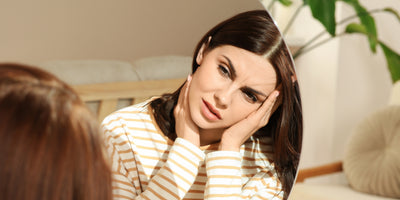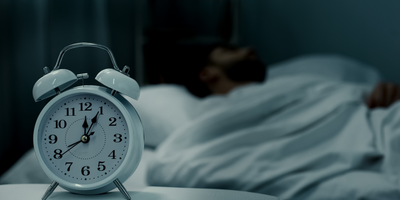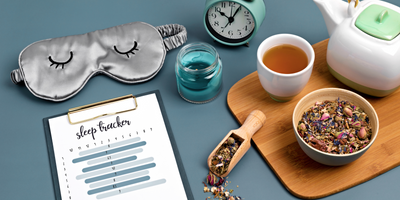
A Detailed Look into Sleep Disorders and Natural Remedies in the Elderly
Sleep disorders in older adults are common and can significantly impact their health and well-being. These disorders often stem from a variety of factors, including physical health conditions, medications, and changes in the sleep-wake cycle. The symptoms can range from difficulty falling or staying asleep, excessive daytime sleepiness, to irregular breathing or increased movement during sleep. The implications of these sleep disturbances are far-reaching, including an increased risk of cognitive decline, heart disease, and falls.
A Closer Examination of Common Sleep Disorders among the Elderly Population
Among the most common sleep disorders in the elderly are insomnia, sleep apnoea, restless legs syndrome, and circadian rhythm sleep disorders. Insomnia is characterised by difficulty initiating or maintaining sleep. Sleep apnoea is a condition in which breathing is repeatedly interrupted during sleep. Restless legs syndrome is a neurological disorder that leads to an uncontrollable urge to move one's legs, which can disrupt sleep. Circadian rhythm sleep disorders involve a disruption in the body's internal clock, leading to sleep-wake cycle disturbances.
The prevalence of these disorders increases with age, often due to changes in sleep architecture, lifestyle, and comorbidities. It's vital to recognise and diagnose these conditions early to prevent potential negative health impacts. Additionally, a comprehensive approach that addresses the biological, psychological, and social factors contributing to these disorders is needed to effectively manage them.
Exploring Natural Remedies for Sleep Disorders in the Elderly: Promoting Restful Nights

There is a growing interest in natural remedies for sleep disorders due to the potential side effects of pharmacological interventions. Several natural approaches have shown promise in promoting better sleep among older adults. These include lifestyle modifications, cognitive-behavioural therapy for insomnia (CBT-I), mindfulness-based therapy, and dietary supplements.
Lifestyle modifications are often the first line of treatment. This may include regular physical activity, a healthy diet, reduced caffeine intake, and maintaining a consistent sleep schedule. CBT-I, an evidence-based approach, aims to change thought patterns and behaviours that interfere with sleep. Mindfulness-based therapy, such as meditation and yoga, can help reduce stress and promote relaxation, leading to improved sleep. Dietary supplements, such as melatonin, valerian root, and chamomile, have also been used to promote sleep, though their efficacy varies, and they should be used under the supervision of a healthcare provider.
Insomnia and Ageing: Insights into Effective Management Strategies
Managing insomnia in older adults can be challenging due to its complex nature. A multi-faceted approach that incorporates both pharmacological and non-pharmacological strategies is often the most effective. This may include cognitive behavioural therapy, sleep hygiene practices, medications, and alternative therapies.
CBT-I is a structured program that helps individuals replace thoughts and behaviours that cause or worsen sleep problems with habits that promote sound sleep. Sleep hygiene involves practices that are conducive to getting good quality sleep, such as maintaining a consistent sleep schedule, creating a restful environment, avoiding napping, and limiting exposure to screens before bed.
Pharmacological treatments can be effective, but they come with potential side effects and risks, especially for older adults. Therefore, they are typically reserved for short-term use or when other treatments have failed. On the other hand, alternative therapies such as acupuncture, massage, and aromatherapy have shown some promise, although more research is needed to confirm their effectiveness and safety.
The Role of Circadian Rhythm Disruption in Sleep Disorders among the Elderly
Circadian rhythm disruption is common in older adults and can contribute to various sleep disorders. This internal biological clock regulates the timing of sleepiness and wakefulness. As we age, changes in our circadian rhythm can lead to earlier sleep and wake times, reduced quality and quantity of sleep, and increased daytime sleepiness.
Understanding and addressing circadian rhythm disruptions can be a key factor in managing sleep disorders. For example, exposure to natural light during the day can help reset the circadian rhythm. Similarly, minimising exposure to artificial light at night, particularly blue light from electronic devices, can help promote better sleep.
Sleep Apnoea in Older Adults: Recognising the Signs and Seeking Solutions
Sleep apnoea, specifically obstructive sleep apnoea, is common in older adults and can significantly impact their health. This condition, characterised by repeated interruptions in breathing during sleep, can lead to reduced oxygen levels in the blood, causing daytime sleepiness, cognitive impairment, and increased risk of cardiovascular disease.
Treatment for sleep apnoea often involves continuous positive airway pressure (CPAP) therapy, which uses a machine to keep the airway open during sleep. Lifestyle changes such as weight loss, cessation of smoking, and avoiding alcohol can also help manage the symptoms.
Holistic Approaches to Promote Better Sleep in Ageing Individuals
A holistic approach to sleep health recognises that good sleep is influenced by physical, emotional, and environmental factors. This approach can involve strategies such as mindfulness-based stress reduction, yoga, tai chi, and relaxation techniques, all of which have been shown to improve sleep quality in older adults. Other components may include nutritional counselling, physical therapy, and social engagement.
Holistic approaches are generally safe, promote overall wellness, and can be easily incorporated into an individual's routine. They allow for personalisation and can address multiple facets of health simultaneously.
The Power of Sleep Hygiene: Establishing Healthy Sleep Habits for Seniors
Healthy sleep habits, or sleep hygiene, can have a powerful impact on sleep quality and overall health. These habits include maintaining a consistent sleep schedule, ensuring the sleep environment is dark, quiet, and cool, limiting exposure to screens before bed, avoiding caffeine and alcohol close to bedtime, and establishing a relaxing bedtime routine.
Sleep hygiene can also involve daytime habits such as getting regular physical activity and exposure to natural light, which can help regulate the sleep-wake cycle. Despite being relatively simple, these habits can have a profound impact on sleep health.
Insomnia: A Common Complaint Among Seniors
Insomnia is perhaps the most widely recognised sleep disorder among the elderly. It is characterised by difficulty falling asleep, staying asleep, or waking up too early. Moreover, it's not just the quantity of sleep that is affected but also the quality, with many elderly individuals feeling unrefreshed even after a full night's sleep.
The causes of insomnia in older adults are multifactorial, including physical and mental health conditions, medications, and lifestyle factors. Addressing these root causes and employing a combination of therapeutic strategies, like cognitive-behavioural therapy, sleep hygiene education, and, if necessary, medication, can help manage insomnia effectively.
Summary
Prevalence and Impact of Sleep Disorders in the Elderly- Sleep disorders are common among older adults and can significantly affect their overall health and quality of life.
- Symptoms like difficulty in falling asleep, frequent awakenings, and excessive daytime sleepiness can lead to further health issues like cognitive decline and increased risk of falls.
- Common sleep disorders among the elderly include insomnia, sleep apnoea, restless legs syndrome, and circadian rhythm sleep disorders.
- These disorders can be influenced by various factors like physical health conditions, medications, and lifestyle changes, necessitating early recognition and comprehensive management.
- Natural remedies like lifestyle modifications, cognitive-behavioural therapy, mindfulness-based therapy, and dietary supplements are gaining attention for managing sleep disorders.
- These approaches, while beneficial, should be utilized judiciously and under healthcare supervision to ensure safety and efficacy.
- Managing insomnia in the elderly involves a combination of pharmacological and non-pharmacological strategies, including cognitive-behavioural therapy and sleep hygiene practices.
- While pharmacological treatments can be effective, they should be used cautiously due to potential side effects, especially in older adults.
- Circadian rhythm disruptions, common in the elderly, can lead to various sleep disorders and impact overall health.
- Strategies like ensuring exposure to natural light during the day and minimizing exposure to artificial light at night can help manage circadian rhythm disruptions.
- Sleep apnoea, characterized by repeated interruptions in breathing during sleep, can lead to various health issues like daytime sleepiness and increased cardiovascular risk.
- Treatments like continuous positive airway pressure (CPAP) therapy and lifestyle changes can help manage sleep apnoea effectively.
- Holistic approaches, including mindfulness-based stress reduction, yoga, and tai chi, can improve sleep quality by addressing physical, emotional, and environmental factors.
- These approaches, while promoting overall wellness, should be personalized to address individual needs and preferences.
- Sleep hygiene, involving habits like maintaining a consistent sleep schedule and creating a conducive sleep environment, can significantly impact sleep quality.
- These habits, while simple, can be profoundly impactful and should be encouraged among the elderly to promote better sleep health.
- Insomnia, characterized by difficulty in initiating and maintaining sleep, is a common issue among seniors, affecting both sleep quantity and quality.
- A multifactorial approach, addressing the root causes and employing therapeutic strategies, can effectively manage insomnia among the elderly.
Deep Sleep Support
We’ve created a Deep Sleep Supporting supplement with a combination of the best available ingredients proven to assist in a better night’s sleep. This supplement is an easy-to-mix, great-tasting powder, offering a therapeutic dose of the nutrients your body needs to relax and fall asleep. Learn more about it here.







